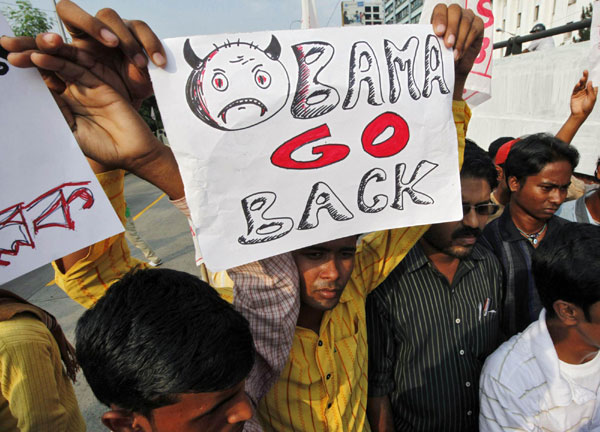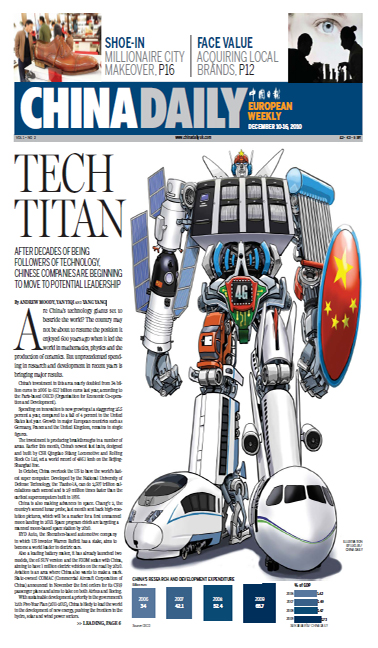Obama sees 'win-win' relationship with India
Updated: 2010-11-07 12:11
(Agencies)
|
 Demonstrators hold placards during a protest against US President Barack Obama's visit to India, in Kolkata November 6, 2010. [Photo/Agencies] |
Intent on demonstrating his attention to the sluggish US economy even while overseas, Obama also told a meeting of US and Indian executives that the US would relax some export regulations that have complicated trade between America and this fast-growing country of 1.2 billion people.
"As we look to India today, the United States sees the opportunity to sell our exports in one of the fastest growing markets in the world. For America, this is a jobs strategy," the president said in a speech to the US-India Business Council. The remarks also were aimed at US voters who punished Democrats in the midterm elections in part over continued high unemployment.
Obama said it should be a "win-win" relationship with India, but in a nod to US sensibilities he also acknowledged concerns in the US about outsourcing.
"There still exists a caricature of India as a land of call centers," the president said.
He said people in India also are concerned about the impact of US goods coming into their country, but contended that growing trade could only benefit both sides in the long run. He said he sees huge untapped potential in the relationship, noting that India doesn't even rank among America's top 10 trading partners.
"There is no reason this nation can't be one of our top trading partners," the president said.
To that end he said the US would seek to reform export controls that resulted from past administrations' concerns about India's nuclear industry. The changes, which have been much sought-after in the business community, include relaxing controls on India's purchase of "dual use" technologies that could be used for civilian or military purposes, and removing a few of the last remaining Indian companies on a so-called "entities list" of groups that face restrictions on doing business in the US
The commercial deals he announced include the purchase of 33 737s from Boeing by India's SpiceJet Airlines; the Indian military's plans to buy aircraft engines from General Electric; and preliminary agreement between Boeing and the Indian Air Force on the purchase of 10 C17s.
For the most part, the deals were already pending, but the White House contends Obama's visit to India helped finalize them. Officials said the deals would support 53,670 US jobs, but it was not clear how many, if any, new jobs would be created as a result.
Obama addressed the business leaders shortly after arriving in Mumbai, where his first stop was at the Taj Mahal hotel to commemorate the 2008 terror attacks that killed 166 people across the city. The president said he intended to send a signal by making Mumbai the first stop of the trip and by staying at the Taj, which was a target during the terror siege.
"The United States and India stand united," he said. "We'll never forget."
But illustrating the difficulties of the US-India relationship, Indian commentators quickly seized on the president's failure to mention Pakistan. Pakistan was the home of the 10 assailants, the place where they trained and the base they used to launch the attack.
Pakistan is also India's archrival _ but a linchpin for Washington and its allies in the war in Afghanistan.
After his remarks on the terror attacks, Obama visited a museum in a home where Mohandas Gandhi once lived.
Paper's Digest

Fit for fashion
Traditional dresses are becoming High-End favorites with price tags to match.
China is producing tech leaders
Coffee giants rush for prime plantations
Printing revolution
Specials

The naked truth about nude art
A growing number of Chinese people are now choosing to go nude for posterity, particularly young women and new brides.

Past Perfect
Management consultant delves into Chinese history and five-year plans to find clues to nation's future.

Dream walker
Norwegian Robert Loken knows that a journey of a thousand miles begins with a single step but in his case it was a sojourn of 6,000 kilometers.

